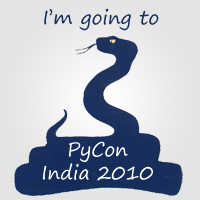This is an old one, pretty famously seen on uva, etc. I found
Choice to be better than OptParse, as said in Choice docs - it like writing poems for command-line parsing :D
Initially I was doing a string[j].chr.to_i which seemed like a required bullshit, I wish it could've been string[j].to_i but string[i] gives back a decimal. Now one could talk about the C style '5'-'0' conversion to number, but then, that machine dependent (think ascii, ebcdic, etc). The slightly more ruby-ish way - string[j..j].to_i :)
Here's my number -
abhishekmishra@mbp [~/code/BORQ]> ruby q2_lcd_numbers.rb -s 3 9535009187
--- --- --- --- --- --- --- --- ---
| | | | | | | | | | | | | | |
| | | | | | | | | | | | | | |
| | | | | | | | | | | | | | |
--- --- --- --- --- ---
| | | | | | | | | | | | |
| | | | | | | | | | | | |
| | | | | | | | | | | | |
--- --- --- --- --- ---
Surprisingly the PyMos core code is 180 lines while this reaches upto 108. Python => more results per line? The absence of 'end' in python is one big reason for this. Besides I dont find my ruby code so ruby-ish at this stage.
Labels: Ruby




